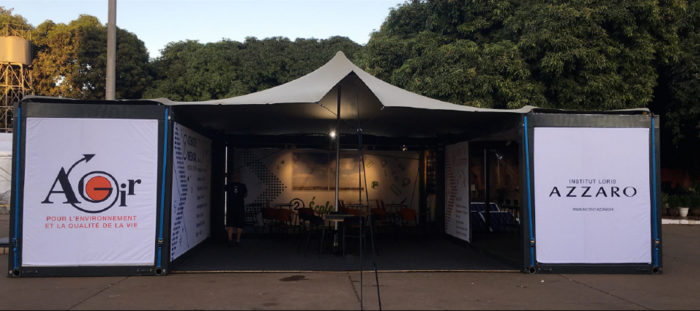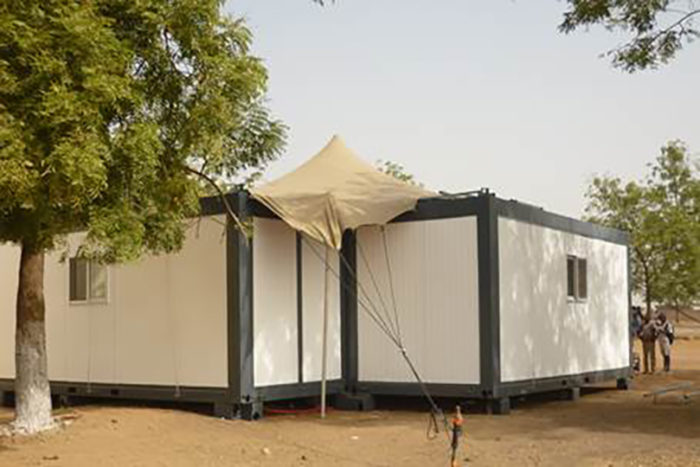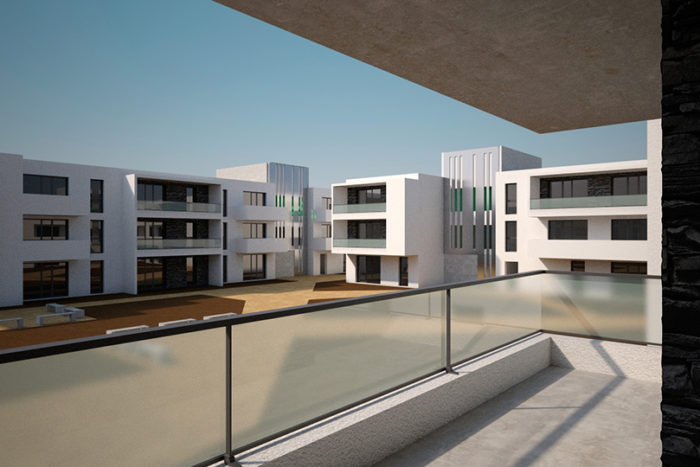Our action plans
The main axes
![]()
«Industrial progress and development have often harmed nature and mankind. The aim of the new millennium will be to reconcile the two in order to work towards a more humane nature. We’re all very concerned.»
Humanitarian Action
Because access to renewable energy, health, education and information should not be a luxury, the Loris Azzaro Institute is committed to defending these fundamental rights and meeting the needs of isolated populations around the world.
The Care Centre, an innovative project bringing together the functions of a welcome, prevention and vaccination centre, is a concrete example of this commitment. This mobile unit is fully in line with the sustainable development goals, thanks to its 100% photovoltaic solar technology made in France.
Environmental education
Environmental education and sustainable development is a key issue in today’s society. The Loris Azzaro Institute firmly believes in the power of the new generations to understand the problems linked to climate change and to provide the necessary drive for a global change in behaviour. This is why the foundation develops environmental education programmes, which are given to children in schools and in the various districts of Toulouse. These programmes are educational tools used to teach children to take into account the ecological significance of all their daily actions and encourage them to become full-fledged eco-citizens, bearers of the values of environmental protection dear to Loris Azzaro.
Eco-construction
The “Housing” standard of the Loris Azzaro Institute defines criteria for eco-friendly construction in accordance with extremely rigorous and innovative specifications. It integrates more demanding insulation, comfort and energy consumption requirements than the current standard.
These are the values that can be found in the heart of Toulouse, in a luxury apartment block that favours innovation, energy performance and high-quality materials. Toulouse represents an unparalleled courageous ecological production, combining high-quality materials, originality and architectural modernity.
Future projects
![]()
At the beginning of the 21st century, the world is constantly changing. Transformations have never been faster. Man is increasingly disconnected from nature.
The major challenges that humanity faces are countless: lack of resources, access to health care and education, global warming, pollution, the digital divide, etc.
Faithful to the humanist values of the creator, the Loris Azzaro Institute proposes to accompany eco-friendly and innovative projects, placing man at the centre of a harmonious development with nature.
A call for projects will be launched soon. They may include an educational, solidarity or environmental dimension. The selected projects will be subject to a selection process and will be financially supported by the Institute enabling them to be carried out.
At the beginning of the 21st century, the world is constantly changing. Transformations have never been faster. Man is increasingly disconnected from nature.
The major challenges that humanity faces are countless: lack of resources, access to health care and education, global warming, pollution, the digital divide, etc.
Faithful to the humanist values of the creator, the Loris Azzaro Institute proposes to accompany eco-friendly and innovative projects, placing man at the centre of a harmonious development with nature.
A call for projects will be launched soon. They may include an educational, solidarity or environmental dimension. The selected projects will be subject to a selection process and will be financially supported by the Institute enabling them to be carried out.
Rénovation « EnergieSprong » des bâtiments résidentiels collectifs :
L’Institut Loris Azzaro en partenariat avec le D.E.S.S. mettent en œuvre des missions de rénovation énergétique des bâtiments visés par les mesures gouvernementales issues de la loi Energie et Climat du 8 novembre 2019 (article 22), qui ont pour objectif de rénover tous les bâtiments qualifiés de « passoires thermiques » d’ici dix ans.
Les missions mises en œuvre par l’Institut concernent les bâtiments compris dans les grands ensembles immobiliers urbains, ainsi que les bâtiments « Haussmanniens » ou encore « Belle Epoque » qui sont actuellement soumis à un destin de consommation énergivore sans fin.
Le marché est considérable : 100 000 logements F ou G collectifs à rénover par an, dont Paris et l’Ile-de-France concentrent plus de 1 000 copropriétés en grands ensembles et 16 % en majorité haussmanniens. Il représente, en tenant compte d’un coût moyen de travaux par logement de 20 000 €, un volume de financements / investissement de 2 milliards par an.
Les opérations de rénovation s’appuient sur le programme européen « Transition Zéro » suivant la démarche « EnergieSprong », ou « bond énergétique » en hollandais.
L’objectif est d’atteindre le niveau=0, c’est-à-dire lorsque les économies d’énergie majorées de la production en énergie renouvelable du bâtiment, aides déduites, permettent sur une période de 30 années d’équilibrer les dépenses de travaux affectées à un programme de rénovation.
Programmes de rénovation de logements pour des bâtiments à l’étude : Nice-Nord (800), Grenoble Villeneuve (1400), Marseille Rouvière (2200), Mantes Val Fourré (200), Paris 19e (400).

Drinking water container:
Access to drinking water: more than 2 billion people are still deprived of this fundamental right. Drinking water is an essential pillar in the quality of life. First of all, for hygiene purposes: unclean water is one of the major carriers of the diseases that cause the most deaths on the planet, particularly diarrhoea. Secondly, because we cannot live without drinking water: those who do not have local access to it are forced to spend large amounts of time and energy searching for it, resorting to random sources with poor quality control.
This is why the Loris Azzaro Institute in partnership with SEEMPA decided to help these countries in need of drinking water. The principle is to transform sea containers into drinking water tanks. The containers will hold 24,000 litres of water, which can be strategically placed to provide emergency drinking water. They will be fitted with a system of more than 20 taps (instead of just one in the tanker trucks), which will make water distribution 20 times faster than a tanker truck. For this purpose, drinking water will be supplied by the SEEMPA company, which operates an artesian spring which is 808 metres deep in Pays d’Aix region, in Meyreuil.





